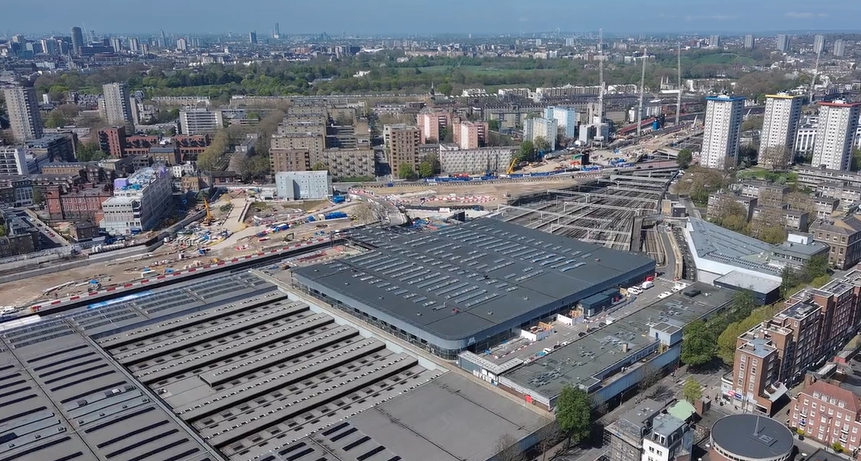A new model for urban regeneration
Camden is seizing an opportunity to exemplify a new model for delivering housing and economic growth – one that places local leadership and community priorities at its heart, and centres on partnerships with regional and national government to deliver for both local residents and the national economy.
The authority is exploring a range of options, informed by independent research. Initial feedback suggests that a locally led urban development corporation offers a practical route to deliver regeneration that is coordinated, effective and accountable.
The LLDC would:
- Ensure that development over and around the station reflects wider Euston area priorities, aligns with other developments in the area, and delivers local community benefits that unlock wider economic and housing potential
- Hold planning powers to enable faster decision-making aligned with local and national priorities
- Oversee land, infrastructure and funding, potentially including business rates retention, developer contributions and government grants
- Play a key role in shaping development activity across the area, ensuring alignment with community priorities
- Embed community representation throughout with resident and youth panels, transparent board appointments and open governance
The LLDC would cover an area around Euston Station that potentially includes the British Library, Phoenix Road and Crossrail 2 sites. It will have close coordination with the Knowledge Quarter – a thriving innovation district, which is home to leading global tech and life sciences businesses currently contributing £35 billion to the national economy each year.
Local leadership delivering national growth
Camden has decades of experience overseeing major regeneration – including the regeneration of King’s Cross, and a deep understanding of the opportunities in Euston.
A LLDC overseen by Camden would bring:
- Local knowledge built on long-standing relationships with residents, businesses and anchor institutions
- Proven regeneration expertise and capacity to deliver complex projects
- Strong influence across London and nationally that can convene partners and generate investment, and support the delivery of the Mayor of London’s Growth Plan
- Financial credibility and a track record of sound management
- Transparent governance, with Camden as the oversight authority supported by an independent expert board
What it would mean for Euston’s communities
A locally led urban development corporation would bring expert knowledge of the local area and deep understanding of resident’s priorities to Euston’s regeneration.
It would work alongside the Government and its delivery partners who will continue to be responsible for delivering the new and redeveloped stations and transport infrastructure at Euston.
The LLDC’s focus would be on regeneration and development, working to deliver new homes, public spaces, jobs and facilities for local residents.
There will be an extensive public consultation held before the LLDC is established, giving local residents and businesses opportunities to shape its design and help set its priorities.
Residents within the proposed Development Corporation boundary will continue to receive all their council services such as housing support, waste collection and social care, from Camden Council without change or disruption.
What happens next?
Subject to LLDC legislation being introduced and once approved by its Cabinet on 12 November, Camden Council will work with the Greater London Authority (GLA) and Ministry for Homes, Communities and Local Government (MHCLG) alongside the Department for Transport (DfT), with the aim of launching proposals for public consultation in 2026.
The final shape and design of the development corporation, including its boundaries, is subject to consultation and legislation commencing by the Government to allow for locally led development corporations to be created. Camden will consult extensively with local residents and assess any impacts on residents and businesses.
Subject to the secondary legislation process, an operational LLDC is anticipated to launch in 2027.
‘;
